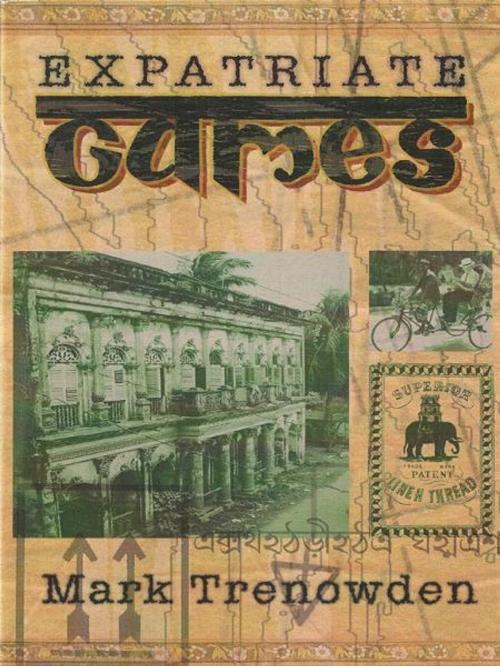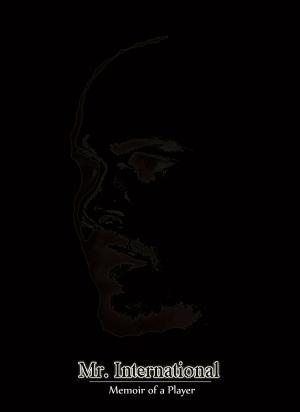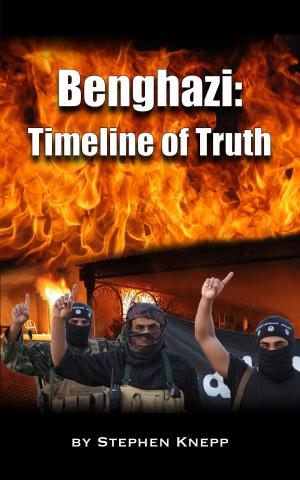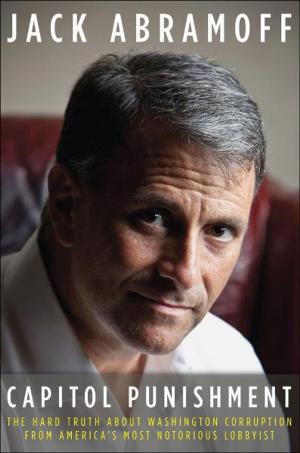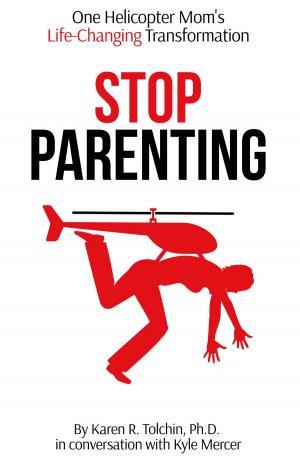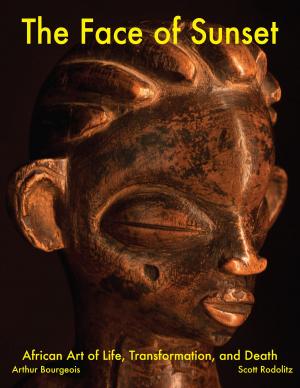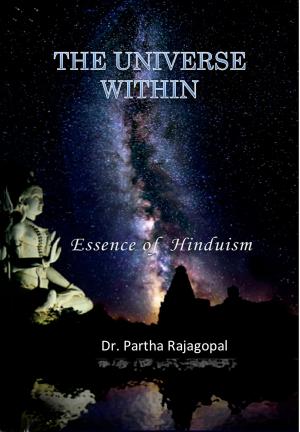Expatriate Games - 662 Days in Bangladesh
An Account of Time Spent in Dhaka Not a Guide Book
Nonfiction, Travel, Asia, India| Author: | Mark Trenowden | ISBN: | 9781620953150 |
| Publisher: | BookBaby | Publication: | October 30, 2005 |
| Imprint: | Language: | English |
| Author: | Mark Trenowden |
| ISBN: | 9781620953150 |
| Publisher: | BookBaby |
| Publication: | October 30, 2005 |
| Imprint: | |
| Language: | English |
Holiday “The knowledge based newspaper” (published in Dhaka, Bangladesh) August 10, 2001 In black and white – by Hasna Abdul Hye This is a reprint of ‘Expatriate Games’ the first full-length book written by a foreigner on life in Dhaka, which in itself is a distinction. That it is based on the author’s experiences of two eventful years in the mid-nineties and not on the impressions of a short touristic visit makes it all the more unique. From the beginning to the end the book is totally absorbing and immensely entertaining. The book is likely to offend the Bangladeshi readers at first because of the author’s apparent lack of sensitivity and dislike for many of the familiar fixtures of life in Dhaka. But with his disarming humour and frolicsome behaviour the author is bound to worm his way into their hearts soon. It does not take long to discover that though reeling from cultural shocks in his early encounters with individuals, sights, sounds and smells, the author’s good-humoured nature gets the better of ill-feelings and turns every experience, however unpleasant, into an occasion for enjoyment of joie de vivre. His mocking attitude and sarcasm give way to his genial predisposition for fun and amusement. The child-like pranks and juvenile delinquency that he indulges in from time to time brings to the fore his comic sense of life in general and expat life in Dhaka in particular. Using humour at every turn he makes fun of everything including himself. At the end he emerges as a very human “Bideshi” who enjoyed every moment of his expat life in Bangladesh. He may even have loved Dhaka warts and all. Otherwise why should he bother to write on the two years he spent in Bangladesh. It is more a book of adventure than a chronicle of daily life lived abroad. In keeping with the spirit of adventure, the author maintains a frenetic speed in narrative and creates suspense intermittently, both of which keep the read glued to the pages. The book starts with the hilarious account of the author’s participation in the orientation course arranged by his national airline in London for passengers who are afraid of flying. His narration of the experience of being mobbed on arrival at Zia International Airport will thrill and terrify those who are yet to go through this ordeal. His experiences in and around the hotels in Dhaka are none too enticing for the uninitiated. But the reader will not fail to appreciate the author’s penchant for observation and curiosity about the surrounding environment. Rather than being cooped up inside the hotel, he prefers to venture out and get the hang of things and measure up fellow beings. Mark Trenowden, a British citizen, accompanied his Canadian born fiancée, Brenda, to Dhaka when she accepted a job in a multinational company dealing with portfolio investment. Part of her assignment was setting up the branch office in Dhaka. With great relish, the author narrates his success in wangling the high-sounding job of office administrator beating other unemployed expat spouses who would accompanying their loved ones to Dhaka soon. The task entailed by the job measures his natural propensity for adventure and thrill. The search for an apartment to live in and membership to an expat club adds to his roller-coaster and rollicking routine. Faced with unforeseen situations and procedures that appear outlandish and bizarre and obstructed by bureaucratic red tape, he alternates between agonized raving and mischievous pranks. It does not take long for him to be acclimatised to life in Dhaka and he learns the ropes required even for things taken for granted elsewhere. There are times when he behaves like a delinquent juvenile to beat the ‘silly system’: multiple use of a one off letter issued by the Board of Investment to avail himself of VIP facilities, getting visas at the airport by pretending to have just arrived using an old ticket to enter the airport past security guards are some of these naughty acts that he commits without any guilty feeling. There are also occasions when his mood turns black and he behaves violently in protest against the dilatory tactics of government officials and the efficiency of private sector individuals. He does not even spare the British High Commission from his wrathful reactions. But whether working for his office or in his private life, the overriding sense of jollity prevails. Looking for social life Mark Trenowden mixes mostly with fellow expats and some Bangladeshis. His account of the social life in Dhaka for foreigners is as informative as it is entertaining. Being curious, he goes out of his way to savour life in the raw ina spirit of adventure. His life in and experience in Dhaka embrace both the expat enclave and beyond. Gifted with the power of keen observation and natural-born skill of analysis he succeeds in a colourful portrayal of life in Dhaka and almost all its sights, sounds and smells captured. His expat life being spent in the mid-nineties, he is also witness to confrontational politics ending up with the rolling of tanks near the President’s house, all of which find due place in the narration. It is the multi-dimensional character which makes the book highly fascinating. The most touching and endearing quality of the author is his attitude towards the ordinary and poor Bangladeshi’s like his driver, cook (s) the street urchins and others. Despity being conscious of heath and hygiene, he does not hesitate to accept an invitation to visit the house of his driver Masum. It is these touches of compassion for ordinary Bangladeshis that bring out the best in him. The good thing about the book is that every event and all individuals as dramatis personae have a clear presence and there is no ambiguity about them everything is in black and white. Holiday “The knowledge based newspaper” (published in Dhaka, Bangladesh)
Holiday “The knowledge based newspaper” (published in Dhaka, Bangladesh) August 10, 2001 In black and white – by Hasna Abdul Hye This is a reprint of ‘Expatriate Games’ the first full-length book written by a foreigner on life in Dhaka, which in itself is a distinction. That it is based on the author’s experiences of two eventful years in the mid-nineties and not on the impressions of a short touristic visit makes it all the more unique. From the beginning to the end the book is totally absorbing and immensely entertaining. The book is likely to offend the Bangladeshi readers at first because of the author’s apparent lack of sensitivity and dislike for many of the familiar fixtures of life in Dhaka. But with his disarming humour and frolicsome behaviour the author is bound to worm his way into their hearts soon. It does not take long to discover that though reeling from cultural shocks in his early encounters with individuals, sights, sounds and smells, the author’s good-humoured nature gets the better of ill-feelings and turns every experience, however unpleasant, into an occasion for enjoyment of joie de vivre. His mocking attitude and sarcasm give way to his genial predisposition for fun and amusement. The child-like pranks and juvenile delinquency that he indulges in from time to time brings to the fore his comic sense of life in general and expat life in Dhaka in particular. Using humour at every turn he makes fun of everything including himself. At the end he emerges as a very human “Bideshi” who enjoyed every moment of his expat life in Bangladesh. He may even have loved Dhaka warts and all. Otherwise why should he bother to write on the two years he spent in Bangladesh. It is more a book of adventure than a chronicle of daily life lived abroad. In keeping with the spirit of adventure, the author maintains a frenetic speed in narrative and creates suspense intermittently, both of which keep the read glued to the pages. The book starts with the hilarious account of the author’s participation in the orientation course arranged by his national airline in London for passengers who are afraid of flying. His narration of the experience of being mobbed on arrival at Zia International Airport will thrill and terrify those who are yet to go through this ordeal. His experiences in and around the hotels in Dhaka are none too enticing for the uninitiated. But the reader will not fail to appreciate the author’s penchant for observation and curiosity about the surrounding environment. Rather than being cooped up inside the hotel, he prefers to venture out and get the hang of things and measure up fellow beings. Mark Trenowden, a British citizen, accompanied his Canadian born fiancée, Brenda, to Dhaka when she accepted a job in a multinational company dealing with portfolio investment. Part of her assignment was setting up the branch office in Dhaka. With great relish, the author narrates his success in wangling the high-sounding job of office administrator beating other unemployed expat spouses who would accompanying their loved ones to Dhaka soon. The task entailed by the job measures his natural propensity for adventure and thrill. The search for an apartment to live in and membership to an expat club adds to his roller-coaster and rollicking routine. Faced with unforeseen situations and procedures that appear outlandish and bizarre and obstructed by bureaucratic red tape, he alternates between agonized raving and mischievous pranks. It does not take long for him to be acclimatised to life in Dhaka and he learns the ropes required even for things taken for granted elsewhere. There are times when he behaves like a delinquent juvenile to beat the ‘silly system’: multiple use of a one off letter issued by the Board of Investment to avail himself of VIP facilities, getting visas at the airport by pretending to have just arrived using an old ticket to enter the airport past security guards are some of these naughty acts that he commits without any guilty feeling. There are also occasions when his mood turns black and he behaves violently in protest against the dilatory tactics of government officials and the efficiency of private sector individuals. He does not even spare the British High Commission from his wrathful reactions. But whether working for his office or in his private life, the overriding sense of jollity prevails. Looking for social life Mark Trenowden mixes mostly with fellow expats and some Bangladeshis. His account of the social life in Dhaka for foreigners is as informative as it is entertaining. Being curious, he goes out of his way to savour life in the raw ina spirit of adventure. His life in and experience in Dhaka embrace both the expat enclave and beyond. Gifted with the power of keen observation and natural-born skill of analysis he succeeds in a colourful portrayal of life in Dhaka and almost all its sights, sounds and smells captured. His expat life being spent in the mid-nineties, he is also witness to confrontational politics ending up with the rolling of tanks near the President’s house, all of which find due place in the narration. It is the multi-dimensional character which makes the book highly fascinating. The most touching and endearing quality of the author is his attitude towards the ordinary and poor Bangladeshi’s like his driver, cook (s) the street urchins and others. Despity being conscious of heath and hygiene, he does not hesitate to accept an invitation to visit the house of his driver Masum. It is these touches of compassion for ordinary Bangladeshis that bring out the best in him. The good thing about the book is that every event and all individuals as dramatis personae have a clear presence and there is no ambiguity about them everything is in black and white. Holiday “The knowledge based newspaper” (published in Dhaka, Bangladesh)
